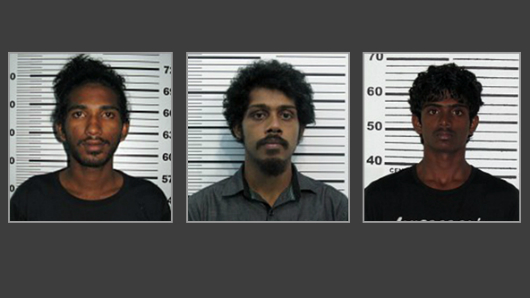President Abdulla Yameen has appointed Supreme Court Justice Abdulla Saeed as the Maldives’ new Chief Justice within an hour of Majlis unanimously approving him for the position.
Opposition Maldivian Democratic Party (MDP) MPs staged a walk out prior to the vote, accusing the ruling Progressive Party of the Maldives (PPM) of burying the country’s 2008 democratic constitution.
MDP MP Imthiyaz Fahmy described the PPM and its coalition partner Maldives Development Alliance (MDA) as “enemies of democracy bent on taking revenge on the people after having assumed power through brute force.”
Tonight’s extraordinary session at 9pm followed an extraordinary morning session during which a two-third majority of MPs voted out incumbent Chief Justice Ahmed Faiz and Justice Muthasim Adnan.
Speaking to local media today, Faiz condemned the Majlis vote as unconstitutional, and said the move raises doubts over the separation of powers and the continuation of judicial independence in the Maldives
“Today will be written down as a black day in the constitutional history of the Maldives. I state this is a black day for the constitution. Taking such a vote against the constitution is, I believe, disrespectful to the constitution,” he said.
Faiz and Muthasim were voted out after the Majlis amended the Judicature Act to reduce the seven-member Supreme Court bench to five judges.
The ruling coalition maintains the move will strengthen the judiciary and facilitate judicial reform.
Black day
Former President Mohamed Nasheed had appointed Faiz as the country’s first Chief Justice in 2010, days after he ordered the army to lock up the Supreme Court premises when the interim Supreme Court bench illegally declared themselves judges for life.
Faiz and Muthasim have formed the dissenting opinion in several controversial cases, including the decision to annul the first round of presidential polls in September 2010.
“Dismissal of a country’s Chief Justice against the constitution is no small matter,” Faiz told CNM today, adding “MPs are mandated to uphold democracy. But today there are doubts over how they perceive democracy.”
Faiz said he had decided not to speak in his defense prior to the vote due to conflict of interest and because he did not want politicians to benefit from any of his statements.
Muthasim was the only Supreme Court Judge with a background in common law.
New Chief Justice
Saeed, who served as the Chief Justice of the Maldives’ first interim Supreme Court from 2008 – 2010, was voted in with 55 votes.
Jumhooree Party (JP) MPs Gasim Ibrahim and Hussain Mohamed voted for Saeed despite having opposed Faiz and Adnan’s removal this afternoon. JP MPs Ali Hussein and Abdulla Riyaz, who had voted against the two judges’ dismissal, did not participate in the vote.
The watchdog Judicial Services Commission (JSC) had recommended that the two judges be dismissed for gross misconduct and incompetence on Thursday. But details of the ruling or evaluation criteria have not been made available to MPs or the public yet.
The seven member Civil Court last night declared the Judicature Act amendment unconstitutional and said it could “destroy judicial independence” in the Maldives.
PPM MP Riyaz Rasheed said Saeed’s appointment would strengthen the judiciary and facilitate judicial reform as MDP had advocated for.
He described Saeed as an educated and capable candidate with a master in Shari’ah and law. Saeed had also committed the Qur’an to memory, Riyaz claimed.
Supreme Court Justice Ali Hameed, implicated in a series of sex tapes, administered Saeed’s oath of office.


